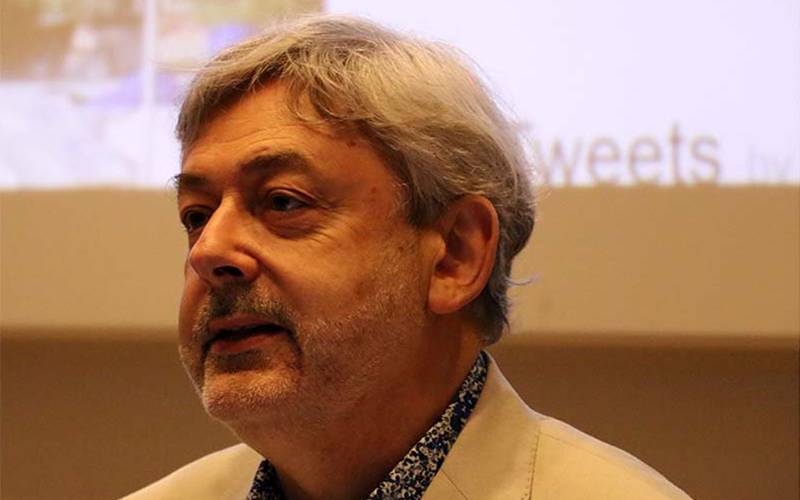Since the crisis began, David has been running a Covid-19 observatory and codifying the results into successive iterations of a document called "Building Planning Scenarios for Viral Pandemics".

What is your role and what does it involve?
I am a professor in the Institute for Risk and Disaster Reduction (IRDR). For the last 40 years I have specialised in the interdisciplinary study of disasters. I am particularly dedicated to teaching, research and publication on emergency planning and management. Within IRDR we have a cascading disasters research group, as we believe that, in modern networked societies, almost all disasters are likely to have cascading impacts.
How are you responding to the pandemic through your research?
Since the start of the current crisis I have been running a modest Covid-19 observatory and codifying the results into successive iterations of a document called "Building Planning Scenarios for Viral Pandemics". The purpose of this work is to describe all the elements that need to be taken into account when building and refining emergency plans to cope with viral pandemics.
We have known the basic scenario for the current crisis since it was formulated over the period 2003-2009. I first became aware of it in 2008 and have been teaching it regularly ever since. What has happened since January is exactly what was predicted, with the one difference that an influenza rather than a SARS virus was expected (and that could still happen). In emergency management terms, this makes very little difference.
I have been highly active in the media and various fora in providing a critique of the UK Government's management of the pandemic crisis, which in my opinion has been very poor indeed. Emergency planning and management are key disciplines and they have been marginalised and ignored. The result has been massive inefficiency in response. Eventually, I hope to be able to contribute to the various parliamentary enquiries on this. I would like to see the UK develop a far better emergency response structure than it currently has.
As an Italian citizen and resident of Tuscany (where I am currently based), I continue to study the Italian response to the crisis with interest. I have 40 years' experience of working with Italian institutions and am the former director of emergency training for the Region of Lombardy.
What's next on the research horizon for you?
My work has always been interdisciplinary. Disaster risk reduction encompasses at least 42 disciplines and professions and is a truly 'lateral' field. Hence, in this respect there will be no change in my work. I was expecting in my future research to study, from the emergency planning perspective, the cascading effects of a future magnitude 9 earthquake with epicentre east of Tokio and massive damage all along the coast of central Honshu. Currently, all efforts are dedicated to Covid-19 research, including collaborative work with our Japanese colleagues.
As we transform our teaching to on-line status, I need in parallel to finish my next book, which is entitled "How to Manage an Emergency or Disaster". It will be the companion to my 2016 book "How to Write an Emergency Plan".
What have you learned from lockdown?
We are in the midst of a gigantic social and economic laboratory. In some respects, I have found lockdown to be more participatory than normal life. For instance, I have made about 40 appearances on radio and television, and in podcasts and recordings. Lockdown has also been a test of social values. The results are complex.
How will COVID19 change the world?
At present, I cannot answer this. The scenario for a major pandemic was short on the recovery phase. I keep in mind that it took five years to recover from the 1918-1920 influenza pandemic. Also, I am not optimistic about the world's ability to avoid a second wave of infection. For the rest, there are opposing tendencies: welfare versus exploitation. Inequality needs to be reduced, a greener future needs to be created, many habits need to be changed permanently, but the extent to which it will happen depends on which of the competing currents prevails in the long run.
 Close
Close

